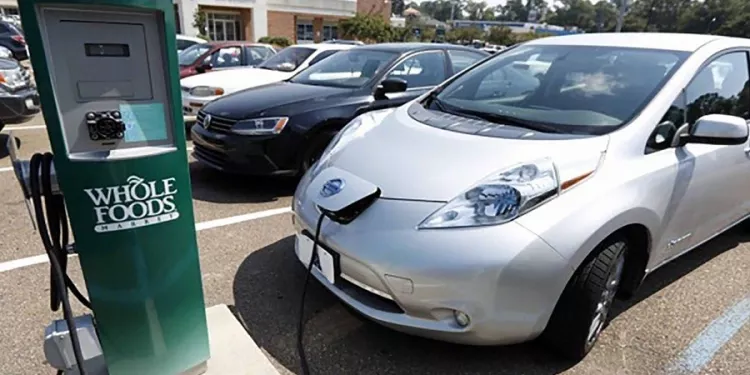Lawmakers in the European Parliament plenary voted to authorize that new vehicles and vans should be zero emissions from 2035 as part of efforts to clean up road transport.
The lawmakers backed the final report on revised vehicle Co2 emission standards legislation with 339 in favour, 249 against and with 24 abstentions. This would mean that in 2035, the major car manufacturers under the EU will have to switch to electric cars. While the process to fade combustion engines from the market might be slow in the EU and even slower in countries that import cars from there.
Interestingly Nigeria is not new to electric cars. In 2020, the Stallion Group launched the first-ever electric car assembled in Nigeria called the Hyundai Kona. Kona, which is a subcompact SUV was said to be able to travel 482 kilometres with one full charge for 9 hours and 35 minutes. If a new car uses 1 litre of petrol to travel 12 kilometres, one full charge of petrol would have been equal to at least 40 litres.
But the main issue with electric cars and Nigeria has never been the price of the car. Sometimes, it isn’t even the road that a potential car owner would worry about, but where to charge the car.
The National Automotive Design and Development Council initiated an electric vehicle pilot program. The NADDC collaborated with the Stallion Group, European Union and other stakeholders to roll out 100 solar-powered electric vehicle charging stations across the country.
Sokoto became the first state in Nigeria to launch a solar-powered electric car charging station. Since then, three other charging stations have been built in Lagos State University, Usman Dan Fodio University, and the University of Nigeria, Nsukka.
A Nigerian company called Metro Africa Xpress, or MAX NG has manufactured electric motorbikes which can travel 160km with a rider and 120km with a passenger.
One Mr. Abubakar Mustapha from Borno state made Nigeria’s first electric minibuses which can carry up to 7 passengers and travel up to 120 to 150 kilometres at full charge.
The BYD Dolphin is an all-electric subcompact hatchback produced by the Chinese manufacturer BYD Auto since 2021. It is due to be released as the EA1 and BYD Atto 2 outside of China. Since its announcement and introduction to the market, this car has seen sales rocket by 162.03% year-over-year.
Not only is its design modern and sleek, but it has also been championed as the cheapest electric car on the market at about $15,000 USD. While this vehicle has the global car community interested, it’s a wonder if and when the vehicle will make its way to Nigeria.
What is certain now is that the state of electricity and roads in the country would make maintenance of electric cars expensive now but could become cost-effective in the long run. However, the fact is that electric vehicles are environmentally friendly.
As the world moves forward to using renewable energy sources and pushes for zero emissions of fossil electric cars, will it ever become the new normal for Nigeria?




